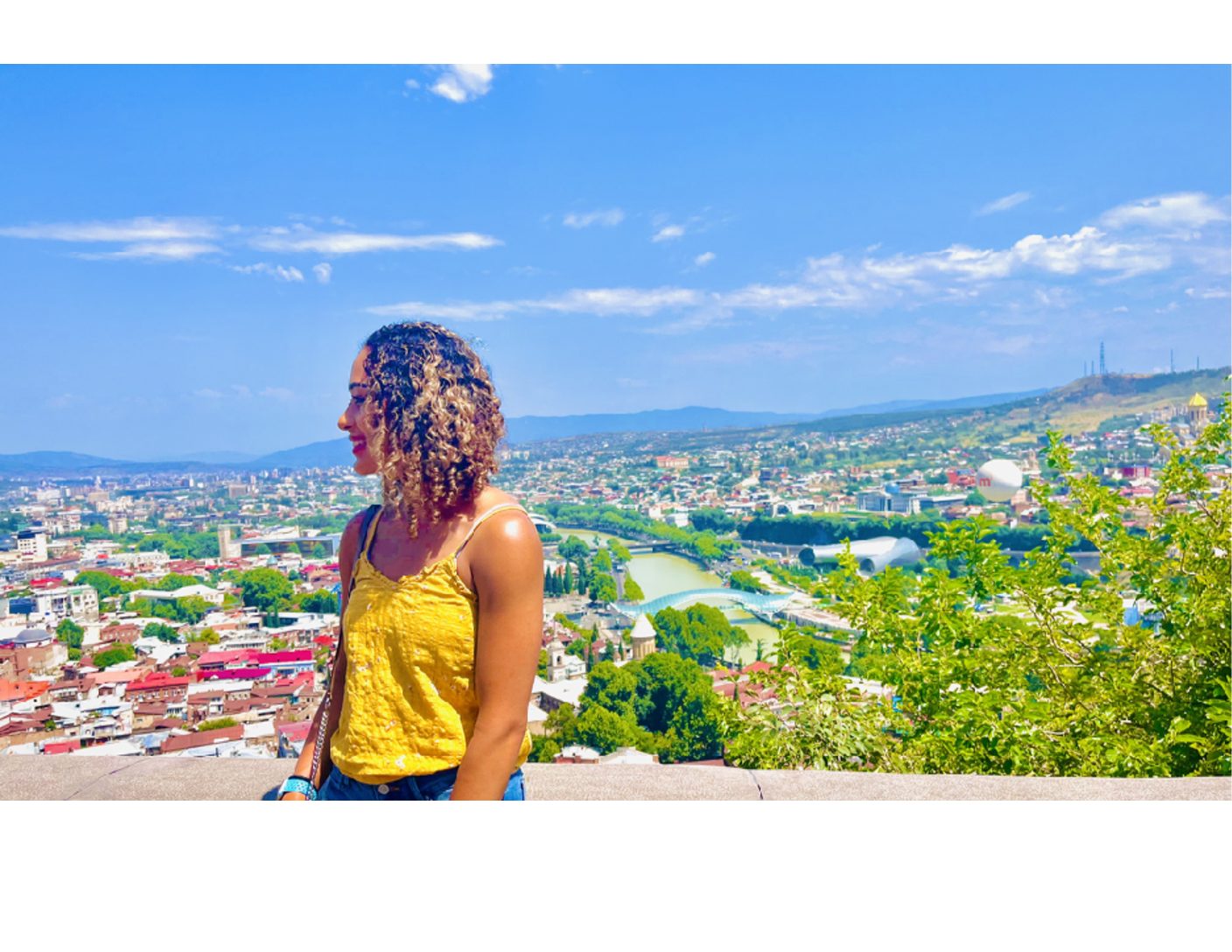And a Big Thank You to the Center for the Study of Languages & Cultures and its Summer Language Abroad Grant Program!


I had such an amazing time in Batumi and all of the other places I was able to visit in Georgia. My program was provided by the School of Russian and Asian Studies, and having never been to another country before, this experience was invaluable and I really hope to be able to visit Georgia again someday. Having studied French and Italian previously, I have always loved learning other languages and about other cultures, but my summer abroad in Batumi with so many different nationalities present really gave me a new appreciation for the human race and all of our different lived experiences.

Regarding language acquisition, as my first time being a foreigner and trying to speak a language other than my native English, it also helped me learn what it is like trying to communicate in a foreign language. I have never been impatient with people who came to the United States and who were just starting to speak English or didn’t know it very well, but before being in their position myself, trying to speak Russian, I will admit I never gave much thought to just how difficult or stressful it might be for new English speakers when they come to America. My 94-year-old great grandmother is from Germany, and immigrated to the U.S. without knowing any English, learning it on her own by reading newspapers and watching TV, but I had never pressed her about how hard that must have been. Especially as I have been taking formal Russian classes and many new immigrants to the United States do not have the opportunity to take formal English classes, having to take what I learned from the classroom and put it into practice was very difficult for me at first, so I can only imagine how difficult it must be to try and go to another country without the teaching that I have received.

One insight I have brought back as a result of this experience is that the world is really such a huge place, and that there are so many different kinds of people, and yet, in some ways, we are not all that different. I think my culture shock started when I first reached the international wing of the San Francisco airport, and increased as I walked through the Istanbul airport, but I would describe the shock as positive and exciting: the beginning of my getting to see another part of the world. When I arrived in Tbilisi, met my first host family in Batumi, and explored the city a little bit the first night I was there, my eyes were opened even more, but again, in a favorable way. There were moments when I missed home and some of the normal things that aren’t as common in Georgia as in the U.S. (like a basic bowl of cereal in the morning), but these were also moments where I got to be even more thankful for the experiences I was getting to have abroad! And as much as I missed home (especially my dogs and cats), by the time I had to leave Georgia I was feeling sad as it felt that I had just gotten comfortable in that beautiful country and with my amazing host family and the rest of the wonderful people I met while in Georgia.

Overall, I would definitely recommend study abroad to anyone considering applying for an SLA grant because it is truly a life changing experience! While in Georgia and speaking Russian, I couldn’t always say exactly what I wanted to, but just as I enjoyed helping people I have met who had only learned a little bit of English by the time they reached the United States, everyone in Georgia was very friendly and excited that I was trying to speak a language they knew very well. It wasn’t easy, but my summer abroad has really made me feel much more comfortable doing my best to speak Russian, even when I was stumbling through all of the special grammar rules and knew I was making mistakes. It has been so nice to feel some improvement in my Russian speaking skills and a to gain a greater knowledge of the language, as well as learning some more colloquial phrases. It has showed me just how important being able to practice a language in a country where many people are fluent in it is to improvement in the language! I would also like to thank my Russian Professor Tom Marullo for encouraging me to study abroad and apply for the SLA grant, as well as Professor Melissa Miller for all of her help navigating the process and providing me with information about what an experience like this may have to offer. If you ever have the chance to go abroad, learn a new language and about another culture, take it!
Спасибо, Грузия. Я уже скучаю по тебе и надеюсь когда-нибудь увидеть тебя снова!









